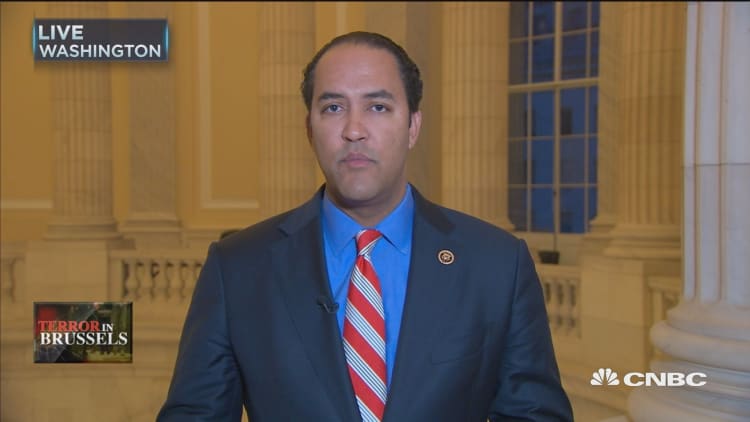
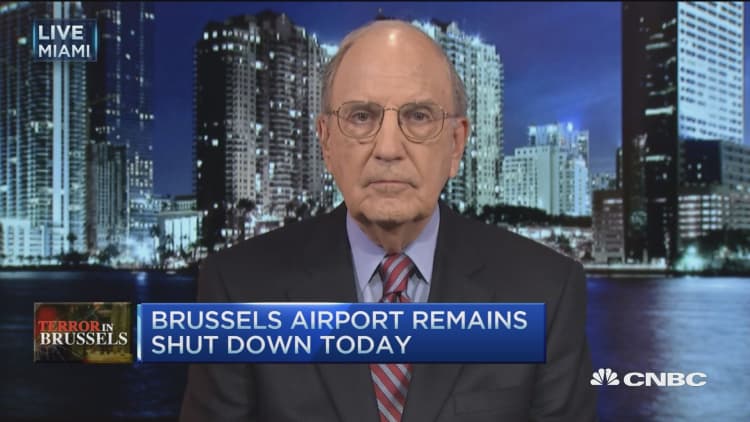
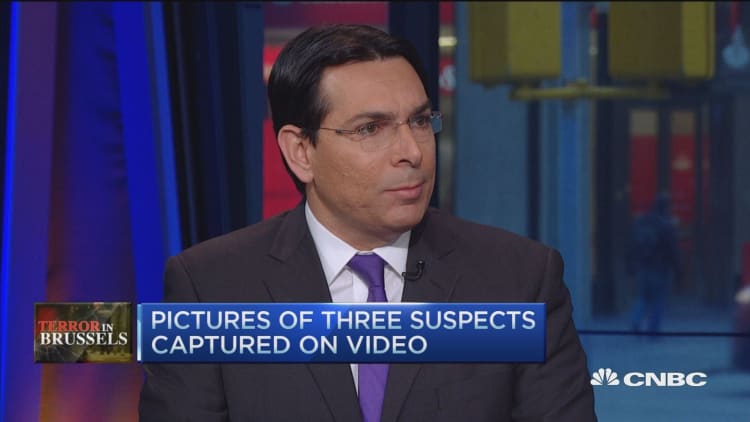
The U.S. lacks the will and leadership in the White House to do what it takes to stop terrorism at its source, a former undercover CIA officer who is now a Republican congressman said Wednesday, a day after the deadly attacks in Brussels.
The nation's intelligence apparatus does not lack the ability to "solve the problem and put terrorists on the run," Texas Rep. Will Hurd told CNBC's "Squawk Box."
Stressing the need to put more operatives on the ground in Iraq and Syria, he said: "The problem is abroad. The problem is our lack of strategy against ISIS in Iraq and Syria."
"I spent 9½ years as an undercover officer in the CIA. I was the guy the in the back alleys at 4 o'clock in the morning, collecting intelligence on threats to our homeland," Hurd said. "I know the men and women in the CIA are eager and willing to go in."
Airstrikes and diplomacy are not enough, said Jamil Jaffer, vice president for strategy and business development at IronNet Cybersecurity and former Department of Justice security expert.
"We've got to address this cancer where the root is, and we haven't done that yet," Jaffer told CNBC's "Squawk Alley." "These people are being inspired from abroad. So do I think ... that we need to be patrolling neighborhoods at home? I think we need to take the fight to the terrorists where we know they live and operate."
Though critics have argued that "boots on the ground" could cause violence to spread, Jaffer said waiting for attacks to come into Western countries is a failed policy.
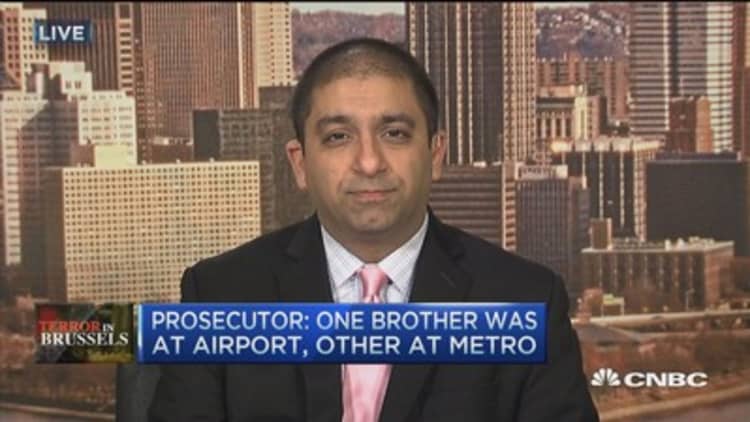
Pointing to the chaos in the Mideast, Hurd said Russia's role to protect Syrian President Bashar Assad in the country's 5-year-old civil war has had a domino effect. "The reason that you have the humanitarian crisis in the region is because of Bashar al-Assad. His policies and his killing his own people indiscriminately has caused those 4 million refugees to go throughout Europe. It's created the environment in which ISIS has grown up."
Another factor contributing to the rise of terrorist ideology in European countries lies with how immigrants are treated, said George Mitchell, former special envoy for Middle East peace under President Barack Obama.
"In the U.S., we've taken in many more immigrants overall, than any other country. But we have a policy of assimilation. We've encouraged them to become citizens," the Democratic former Senator majority leader said. "That has not been the case in most countries around the world."
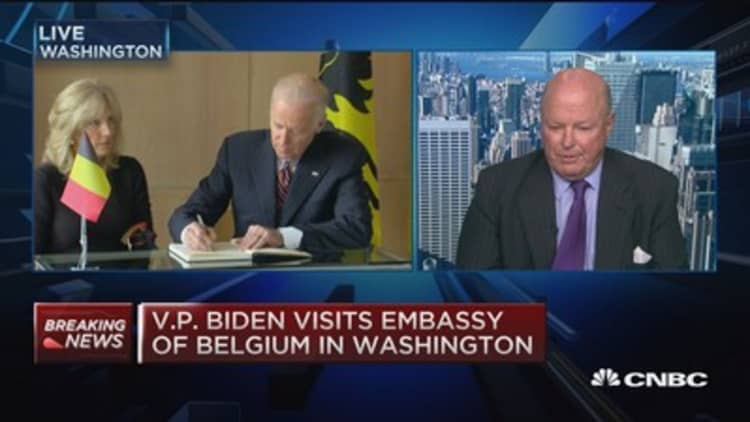
"As a result, there's been a huge ghettoization of unassimilated groups [in Europe]," said Mitchell, adding that that has created a subset of poor, disenfranchised, and in some cases desperate individuals.
Mitchell believes European countries need to recognize these trends and change their approach "given the tremendous internal conflicts within Islam that are producing these kind of radical extremists."
But former ambassador Frank Wisner said though the neighborhood of the suspects faces high unemployment, many countries have influence and power over the roots of ISIS and must all work together.
"This is a small minority," Wisner told CNBC's "Squawk on the Street." "They are extremely well-organized and they're vicious. They have to be crushed, and the way you do it is through good police and good intelligence. And, good international cooperation. This is not only a Belgian problem," said Wisner, international affairs advisor at Squire Patton Boggs and former ambassador to Zambia, Egypt, the Philippines and India.
Also on CNBC, Danny Danon, Israeli ambassador to the United Nations, said the task of combating terrorism is a two-step process, offensive measures such as developing human intelligence and deploying technology, and defensive measures like tighter airport security.
"Unfortunately, we [Israelis] have experience dealing with terrorists. And we're telling our friends in Europe, we stand with you," said Dannon, former Israeli deputy minister of defense. "But first, you have to develop a moral clarity, no justification, no excuses, no self-blaming. You have to fight terrorism, period."
The Islamic State terror group has claimed responsibility for the two bombings at Brussels' main airport and at a city metro station. Thirty-one people were killed and at least 270 were wounded.
In describing Israel's approach to airport security, Dannon said: "In Israel, when you go to the terminal in the airport, you are being checked twice before you get to the check-in area." In the U.S. and Europe, passengers go through only one security screening.
Profiling also needs to be deployed, Dannon said. "I know it's a sensitive issue here in the U.S., but it works, commonsense. Someone who is 22 years old who's coming to board a plane, maybe you want to check him and not to check a grandmother who's 85 years old."
— CNBC's Anita Balakrishnan contributed to this report.





